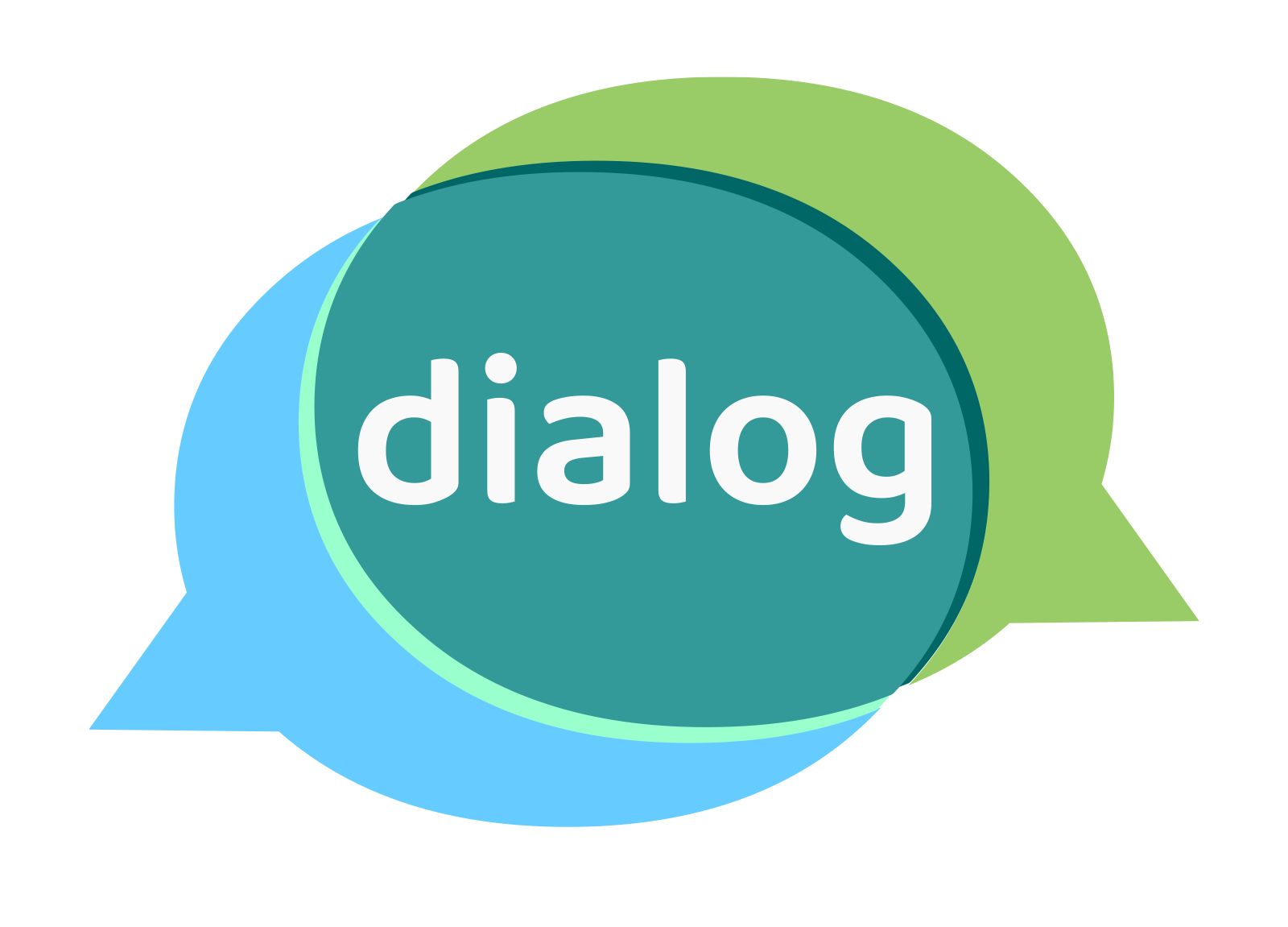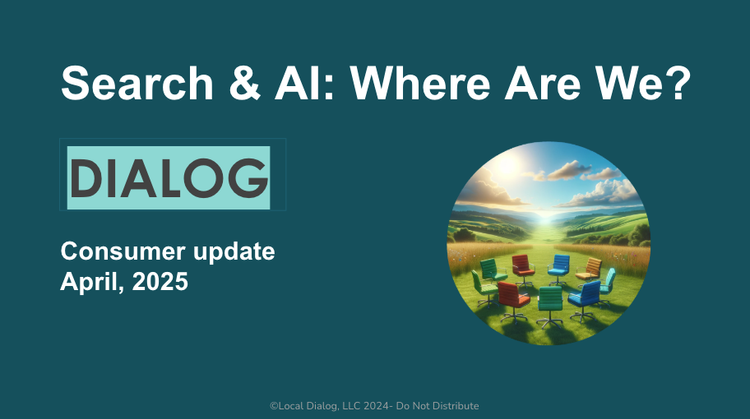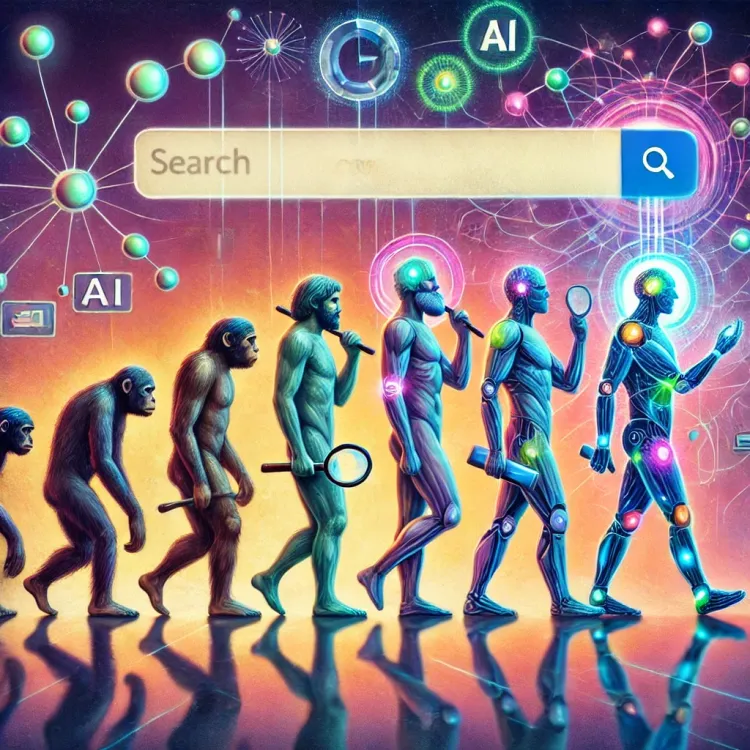SMB Interviews: 100% Awareness, Excitement about AI
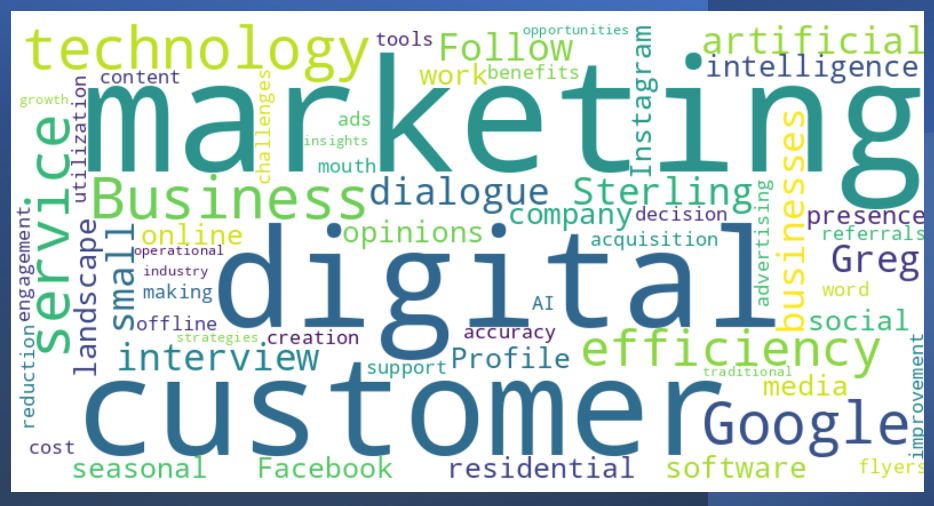
Owners and Verticals
To date we've interviewed* 14 business owners and operators across a range of verticals, business sizes and locations. Among other questions, we ask them what their companies do, how large they are, how they promote themselves and acquire customers (and what's working), what software tools they use and whether they've tried or are using AI in any capacity. Each of their answers leads to multiple follow-ups but the interviews follow generally the same overall structure.
We thought it would be helpful to present some of the early common themes and findings. The information in this article comes from the following businesses:
- Commercial Construction (employees: 20, Tucson, Arizona)
- Residential Construction (employees: 50, Chicago, Illinois)
- Commercial Pool Construction (employees: 8, Tampa, Florida)
- Financial Services and Loans (employees: 89, Northern California)
- Medical Marijuana Dispensary (employees: <5, near Portland, Maine)
- Web Design and Marketing (employees: 11, Temecula, California)
- Disability Advocacy Non-Profit (employees: 6, Chicago, Illinois)
- Closed Captioning Vendor (sole proprietor, St. Louis, Missouri)
- Restaurant (employees: 11, Charlotte, North Carolina)
- Residential Landscaping (employees: 3, near Pittsburgh, Pennsylvania)
The largest company in this cohort is a financial services provider based in Northern California, with 89 employees. The smallest is a sole proprietor from St. Louis who creates closed captions for local TV programming.
Some of what we're finding is entirely expected but there are also surprises. Word-of-mouth, for example, is the most consistent source of new customers for the majority of these businesses. All of them also use social media (mostly Facebook and Instagram) to market themselves. Yet most of them have not claimed their Google Business Profiles; in some cases they didn't know what that was. Software adoption and use is all over the map, with some companies using a few basic applications (e.g., Gmail and Microsoft Word) and others using specialized and sophisticated SaaS tools.
More significantly, all the interviewees were aware of AI (ChatGPT) and were very upbeat and enthusiastic about AI's potential to help them run their businesses.
'Once a Month I Kind of Look Over the Analytics'
In our earlier survey of 1K US local businesses, we asked what methods or channels were used to promote their businesses and which of those delivered the best results. Social media dominated both sets of answers: by 22 points on the usage side and by 20 points on the performance side.
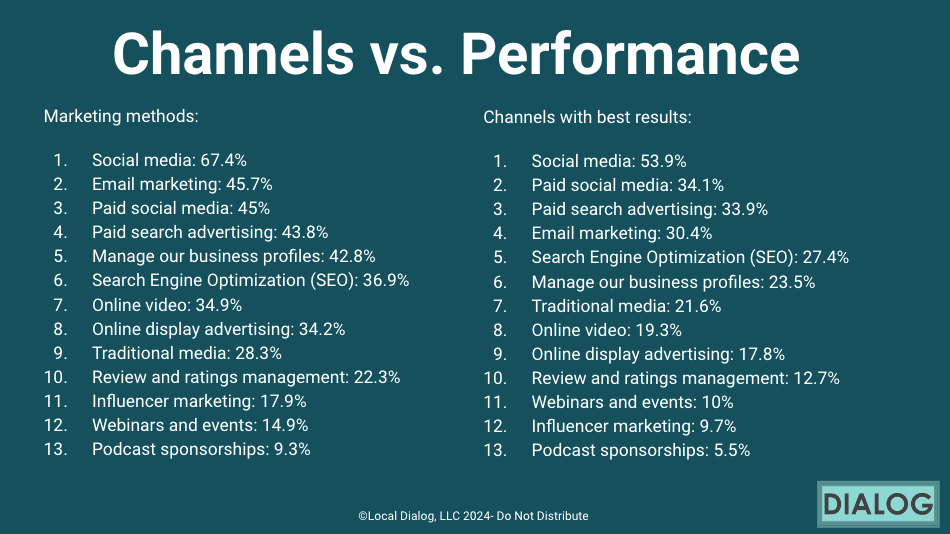
One surprise was the middle-of-the-pack adoption of business profile management (e.g., Google Business Profile) and SEO. Another bigger surprise was the low ranking of reputation management (22%). In most cases, we did not ask "why" follow-up questions in the survey but have been in the interviews.
It appears that many business owners either don't want to engage with reviews (i.e., reviewphobes) or don't have time or know-how to manage them (i.e., no process or vendor relationship). They do conceptually understand that people rely on reviews in making buying decisions, and some understand that more and better reviews means greater visibility on Google. However, their capacity to self-manage reviews is limited. In a few cases there was internal marketing person who "takes care of that."
In this survey we did not include word-of-mouth/referrals as a marketing method. We will going forward, because these business owners said it was either the top or a top method for new customer acquisition. They can't quantify this but it's their general sense. Some of them look at social media data or Google Analytics but most of them do not rigorously investigate their lead sources. So, generally, they think what they're doing is working – if they're busy.
Asked about whether she looks at marketing data, the owner of one of the construction companies said, "Once a month I kind of look over the analytics. But when we're consistent and we're busy, sometimes I don't get a chance ... in my mind I'm like, we're getting business; but if it came to a sudden screeching halt, I'd be like what's wrong? ... I probably should do that more, because it could save me money if I don't need to keep doing it."
Most of these business owners also said they generally ask customers, "How did you hear about us?" But that can be an unreliable indicator of performance.
Social Media vs. Google
One of the more striking takeaways from these interviews is the gap between social media and Google usage. The majority of these business owners had websites but mostly had not claimed their Google Business Profiles – or couldn't remember if they had. In a few cases they didn't know what that was. (We also asked them about "Google My Business.") Interestingly, several of these local business owners had run or were running Google Ad campaigns (paid search) even where they hadn't claimed their free Google Business Profiles, including the construction company owner quoted above.
They were all actively using Facebook and most were using Instagram to market themselves (e.g., images, stories, promotions). Some had dedicated marketing employees, but only a tiny minority were using contractors or an agency. The quoted construction company owner said she could imagine using an external agency if her company got bigger.
Given the central role that Google plays in local business discovery and the fact that Google has invested huge amounts of money to build awareness and engagement with Google Business Profiles, it's somewhat surprising that most of these business owners (and those in the survey) aren't fully optimizing them, or utilizing them at all.
Social media has won the hearts and minds of local business. But there's clearly still a need/opportunity to educate local businesses about certain digital marketing basics, based on their customers' path to purchase behavior.
SMB Software Universe
We also asked local business owners what software or SaaS tools they were using to operate and promote their businesses. The list below reflects almost all the applications mentioned during the interviews, although our sense is that business owners didn't always remember everything they were doing and using. The list may convey an impression of greater average SaaS sophistication than is probably warranted. And there was significant variability in the awareness and usage of different tools. There were some vertical-specific tools mentioned, although not as often as we might have expected.
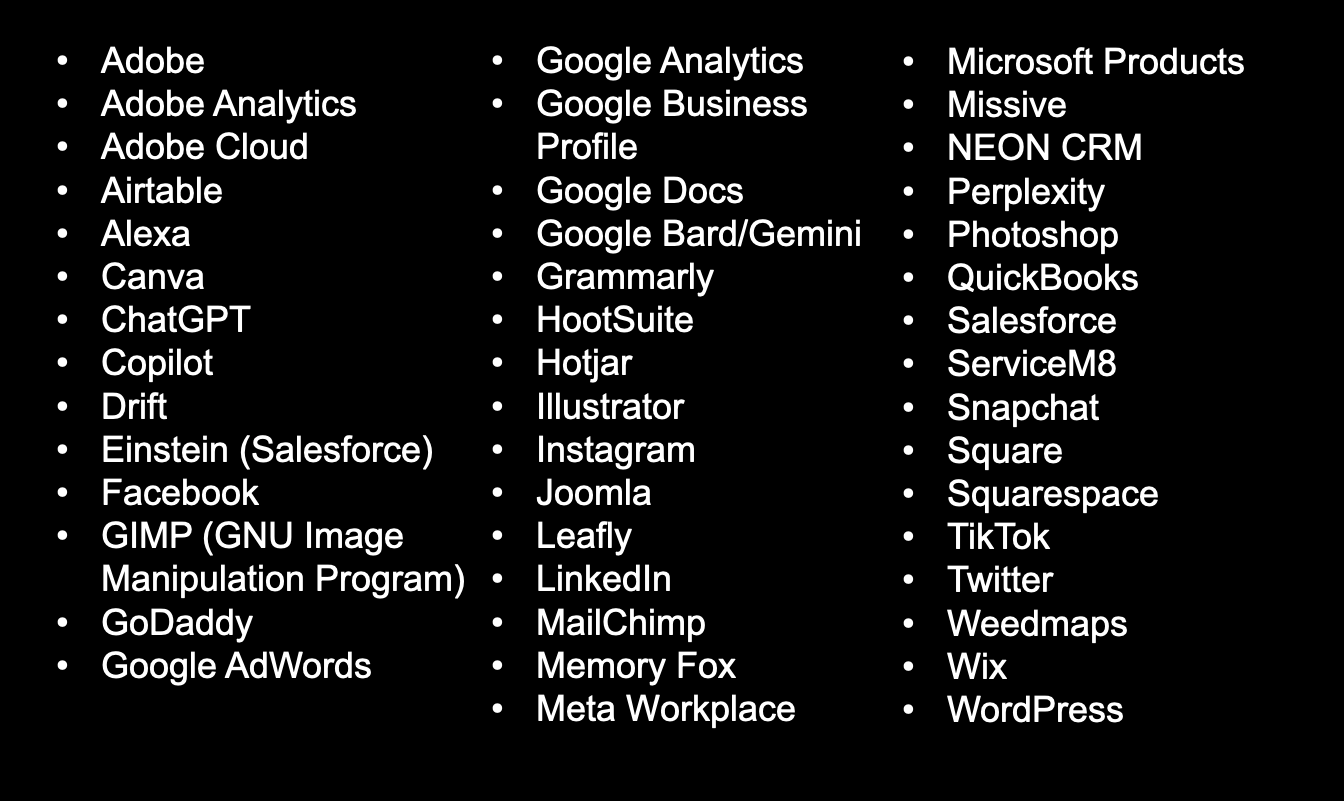
An interesting reaction to some of our questions was defensiveness or mild embarrassment. Some of these business owners knew they "should" be doing this or that thing, such as paying closer attention to analytics or claiming their Google Business Profiles, but weren't or couldn't for one reason or another.
AI Does Things 'That Weren't Possible Before'
Everyone we spoke to in this group was aware of AI; awareness was 100%. And while there were varying degrees of experience with AI, there was a uniformly positive view and the general sense that it could help their businesses in multiple ways. This was true even if they couldn't articulate exactly how – though many could and were very specific.
Everyone we interviewed had heard of ChatGPT, if they hadn't "played with it" or weren't already using it. That could not equally be said of Google Gemini/Bard, which is the second most adopted AI tool in the market. We'd estimate that awareness of Gemini/Bard was about 50% of ChatGPT and adoption was probably half of that.
Below is Dialog survey data about AI adoption, showing responses of businesses with fewer than 100 employees. Roughly 57% claimed to be "actively using AI" or "testing" it. These figures seem high but our interviews so far have confirmed that level of awareness and interest.
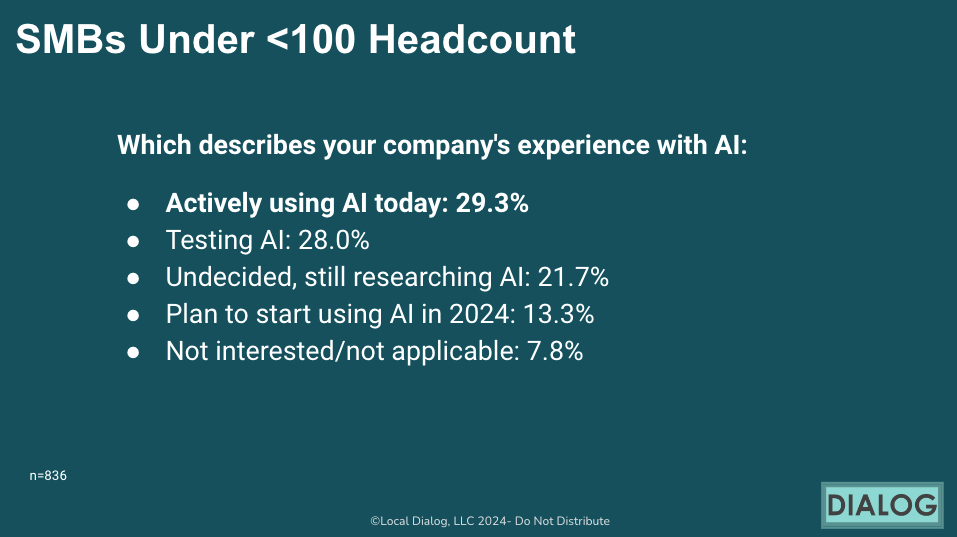
In the interviews, we asked business owners an open-ended question about the potential benefits of using AI. Collectively, they cited a range of benefits and use cases:
- Efficiency/time savings
- Improved decision-making
- Cost reduction (including reduced hiring needs)
- Improved customer experience
- Improved customer service (e.g., chatbots)
- Marketing and customer data insights
- Delivering innovation and creating a competitive edge
- Operational improvements
- Streamlining business processes
- Enhancing creativity and content production
Here are some directionally representative statements about actual and perceived AI benefits from the interviews:
- Decision-making and cost reduction: "It has really helped us in making decisions. It's also helped with cost reduction ... just helped in reducing operational costs and improves workflow and also [enables] faster Innovation."
- Content creation and creative: "You can get something more seamless, creating graphics or a commercial that has mostly graphics and things like that ... it can just create it without having to do much editing."
- Customer service: "I think that it could be utilized for customer service as well ... You could have [a chatbot] over having to pay another company with a bunch of people and you could have less actual reps because most of it could be handled by AI."
- Organization and inventory monitoring: "It's ended just keep helping us be more organized. It already helps remind us when inventory is running low. It's kind of like this amazing invisible worker, and it has already improved accuracy."
- Competitive advantage: "AI is very powerful and can give us an edge."
- Integration across the organization: "We actually have weekly meetings now where we just discuss the new features that are coming out in Bard or ChatGPT, and we brainstorm how we can use these for our business or our clients' businesses. It's really exciting because every week there's something new that we can potentially use to make things more efficient or to do things that were just not possible before."
Takeaways, So Far
The small business world has probably never embraced a new technology as quickly or enthusiastically as they have with AI. Even owners who were relatively unsophisticated about digital marketing had a sense that AI was going to help them and their businesses in a variety of ways.
Local businesses, as has always been observed, are time starved and often overwhelmed by the many challenges of operating a business. Anecdotally, this seemed more true with somewhat larger-sized SMBs than the smallest companies. Even if they conceptually understand something ("should-do"), execution or follow-through typically prove difficult.
Finally, the overall impression conveyed by these initial interviews is that local business owners have few places to turn for trustworthy information about new technologies and best practices. In a few cases there was an existing vendor relationship that was a quasi-trusted source for new information and education. But in general, they're a cautious and skeptical group when it comes to sales outreach.
This is both a challenge and opportunity.
____
*Unfortunately, video and audio quality are uneven and so we're not going to post every one of these interviews but we will present many of them to try to give you a sense of the range of responses and themes.
